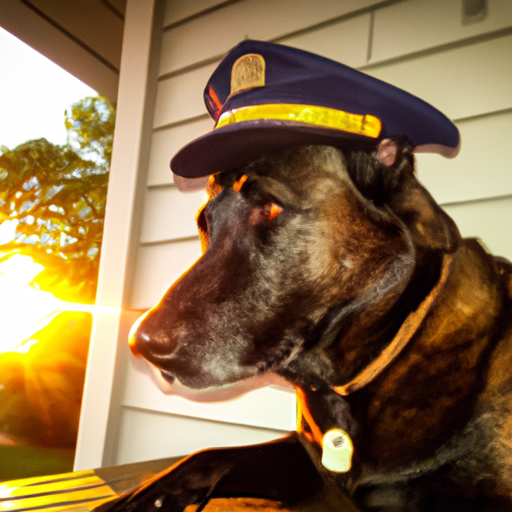1. Introduction
You might have seen them in action on the news or perhaps in your neighborhood, patrolling with their human counterparts. Police dogs, known as K9 units, are an integral part of law enforcement agencies worldwide. They perform a myriad of tasks that range from tracking missing persons to sniffing out illegal substances. But have you ever wondered what happens to these furry heroes when they hang up their badges?
2. The Retirement of Police Dogs
Just like their human partners, police dogs too have a retirement age. Typically, K9 units retire around the age of 8-10 years. However, this isn’t set in stone. The retirement decision often depends on the dog’s health and ability to perform its duties. Once they retire, these dogs deserve a life filled with love, affection, and relaxation – a stark contrast from their rigorous working days.
As you care for your aging loved ones, you can appreciate the importance of a comfortable and caring environment for these dogs in their golden years.
3. Life After Retirement
A retired police dog’s life often takes one of three paths:
-
Adoption by Handler: Most often, the handler or the officer who worked with the dog opts to adopt. They have built a bond over the years that’s difficult to break.
-
Adoption by a Civilian: If the handler can’t adopt, the dog may be put up for adoption.
-
Staying on Active Duty: In some rare cases, if the dog is healthy and eager, it might stay on active duty in a lesser capacity, like community outreach or public relations.
Regardless of where they end up, the dogs are treated with utmost respect and love, much like how you treat your loved ones.
4. How You Can Help
You might be wondering, “How can I support these retired service dogs?” Here are a few ways:
- Adopt a Retired Service Dog: This is a rewarding but demanding task. These dogs require dedicated care, especially considering their past work life.
- Donate to Organizations: Many organizations help retired service dogs find homes, cover medical expenses, and more.
- Volunteer: These organizations often need volunteers to help with various tasks.
| Ways to Help | Description |
|---|---|
| Adoption | Adopt a retired service dog and provide a loving home |
| Donations | Financially support organizations that aid retired service dogs |
| Volunteering | Offer your time and skills to help these organizations |
5. Frequently Asked Questions
Q: What age do police dogs retire?
A: Typically, police dogs retire around the age of 8-10 years.
Q: Can anyone adopt a retired police dog?
A: Yes, but potential adopters are thoroughly vetted to ensure they can provide a suitable home and care.
Q: How can I help retired police dogs?
A: You can help by adopting a retired police dog, donating to organizations that support them, or volunteering your time and skills.
In conclusion, much like humans, police dogs deserve a peaceful and comfortable retirement after years of dedicated service. Let’s ensure they get it. As caregivers, we understand the importance of providing a loving environment for those in their golden years – be they human or canine.



